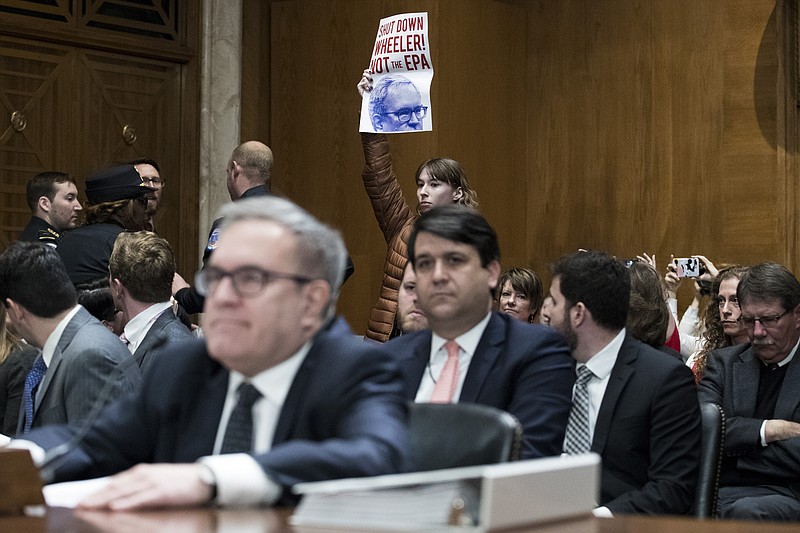Here's an idea for illegal immigration control - borrowed from the U.S. Environmental Protection Agency:
Instead of separating families, corralling them in cages, deporting them and building walls or fences or steel panels, why doesn't the Trump administration just work with undocumented migrants on "compliance assurance."
That's the Trump administration's EPA strategy.
"We are working very hard on compliance assurance," former coal industry lobbyist and current acting EPA head Andrew Wheeler told senators during his nomination hearing earlier this month. The president nominated Wheeler to take Scott Pruitt's place as EPA's leader. "The more compliance assurance that we have, the fewer enforcement actions we need to take," Wheeler said.
Translation: Please polluters: Be good, and let us know when to look the other way.
Under Trump, the nation's environmental watchdog in 2018 levied the lowest civil penalties against polluters in nearly a quarter century, according to a new analysis of agency data.
Last year's $72 million in penalties for breaking the law was the lowest since 1994.
In contrast, penalties for polluters averaged more than $500 million a year since 1994 when the EPA's enforcement office was established. Last year's $72 million represents a decrease of more than 85 percent, even after adjusting for inflation, according to the analysis by Cynthia Giles, who led the EPA's enforcement office under former President Barack Obama.
What's more, nearly half of the penalties came from cases whose settlements were reached before President Trump took office.
And despite Wheeler's claim of working with companies to ensure compliance, Giles' study concludes the amount of money companies need to spend to "become" compliant also fell last year to nearly $5.6 billion. That figure represents the lowest amount of court-ordered relief in 15 years - since 2003 - when adjusted for inflation.
There's still more.
The Associated Press reports the EPA last year pursued the lowest number of criminal prosecutions against polluters since 1988 - three decades.
And of the meager 166 cases that were referred for prosecution, only 62 federal convictions resulted - the lowest since 1995.
It's important not to confuse EPA's civil penalties with fines.
First of all, civil penalty amounts don't just become revenue and go to the treasury. Civil penalties, which the EPA applies for a range of violations from water contamination to air pollution, aim to recover the financial benefit a company (or city or county) has reaped by breaking the law and to impose additional costs so that firms are deterred from committing violations it in the future.
Take, for instance, the $250 million civil penalty levied some years ago against Chattanooga for sewage overflows that violated the Clean Water Act. The EPA and the U.S. Department of Justice ordered Chattanooga to spend the bulk of that $250 million on our own sewage treatment pipes and storage to fix the problem. So when we pay higher sewer fees, we're not paying EPA, we're paying the cost of fixing our own sewage overflow problems.
While the EPA imposes civil penalties that also involve criminal penalties - such as in the case of Volkswagen's emissions cheating scandal - the agency typically has pursued those criminal penalties when a firm knowingly and intentionally violated the law or engaged in gross negligence. In that case, part of the "penalty" was to build a better electric car. Chattanoogans are going to benefit from that, as well.
But when Trump's EPA makes nice with polluters to avoid penalties - and when those polluters also spend less to "become compliant" - we're far less likely to get our pollution problems fixed.
Rep. Frank Pallone Jr., a Democrat from New Jersey and the new chairman of the House Energy and Commerce Committee, called the agency's enforcement numbers "abysmal."
"The troubling lack of enforcement not only threatens the water we drink and the air we breathe, but also sends a dangerous message to polluters that EPA will continue to turn a blind eye," he told The Washington Post this week. "I'm particularly concerned that EPA's already weak enforcement will be further crippled by the ongoing Trump government shutdown."
Oh yeah. There's that, too. Taken together, it all represents a continuing get-out-of-jail-free pass for polluters.
